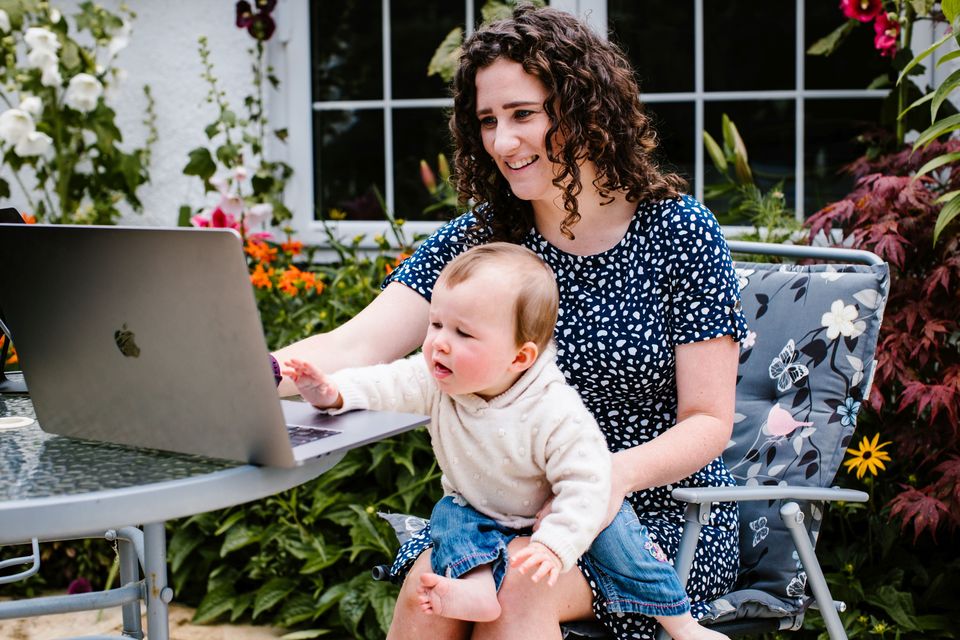Strict structures are unlikely to get the best out of everyone, so firms that advertise flexible working should stick to it.
What time of the day do you find you get the most work done?
I’ve heard a lot of people talking about being most productive first thing in the morning before colleagues are online or in the office. For others, it’s not until the caffeine has kicked in late morning before they are firing on all cylinders. Others love the structure of nine-to-five and knowing that their evenings are their own.
I’m a night owl and, for me, the sweet spot since I was at university has always been after midnight. I’ve had to adjust a bit since my daughter was born, but I still find I do my best work late at night — and that can be helpful when working with colleagues in other time zones.
The point is that everyone is different and in today’s world you are unlikely to get the best out of people by operating a rigid nine-to-five. Those days are gone.
When I set up SciLeads with Daniel McRitchie and James Campbell as a 100% remote company in 2016, flexibility was something we decided to prioritise. We realised there would be a lot of people like us who wanted to do interesting, challenging work, but who would prefer to fit that work around their lives and when they are most productive.
SciLeads is a SaaS lead generation platform for those selling to science. We’re a tech company, and there had long been an element of hybrid and remote working in the tech sector, even before the pandemic.
The flexi-time u-turn
I’ve found it really interesting recently to read so many headlines about employers rowing back on the flexible working policies they’d previously been championing since the chaotic days of enforced working from home in 2020.
I understand that it doesn’t work for every organisation, but, for us, giving our team of 70 true flexibility is what has made people want to work for us and, more importantly, it has zero impact on productivity. In fact, we have been listed in Deloitte’s Fast 50 for the third consecutive year, a ranking of the 50 fastest-growing technology companies on the island of Ireland.
I was thinking about this while I took my car for an MOT in the middle of the day a few weeks ago, thinking about how lots of other people try to fit the MOT in at the start or end of the day and get stuck in traffic. We ask people to start work sometime before 10, but so long as the work gets done, we are no more prescriptive than that — that includes meetings and when they respond to Slack conversations.
Attracting future talent
This freedom to work where and when they want has allowed us to attract talent who value this above everything else.
My co-founder Daniel lives in Canada, and we’ve built a team out there, but our approach means that we’ve been able to keep someone on who has moved to Australia and let another work in Boston over the summer so she could spend time with her elderly grandmother.
More commonly, people’s need for flexibility revolves around being able to pick up kids and balance family life. I love that I don’t have to spend my weekends standing in a queue for the post office because I’ve nipped in at 11am one day during the week when it’s quiet.
Happier at home
The health and wellbeing benefits of home working also bear repeating as employers rush to fill their empty offices again. Being able to go outside in the sunshine to walk your dog or go for a run, go to the gym during the day or make a nice lunch at home has a huge impact on wellbeing. I think the flexible set-up also suits people with a bit of experience who maybe have a young family or don’t want to live in Belfast.
For younger team members and graduates, we do more frequent meet-ups. But otherwise, we only bring the whole team together once a year for a social event — and we give them a year’s notice when it is.
For our people, as well as telling us they are fitter and feel better, they are driving less, saving money and reducing their carbon footprint.
The key is consistency
Our team knows we are never going to randomly ask them to come into an office, so they can get a pet or organise their childcare accordingly. Even if you’re not fully remote like we are, if you have advertised flexible working then I believe you’ve got to stick to it.
We’ve found that our style of working, which also involves paying for people’s home office set-up, appeals to people who want the opportunity to work on good tech, for good pay, but in their own time. We’re currently recruiting for a range of software developers, who tend to love that MO.
Could you be our next SciLeader? Check out our latest roles here.


